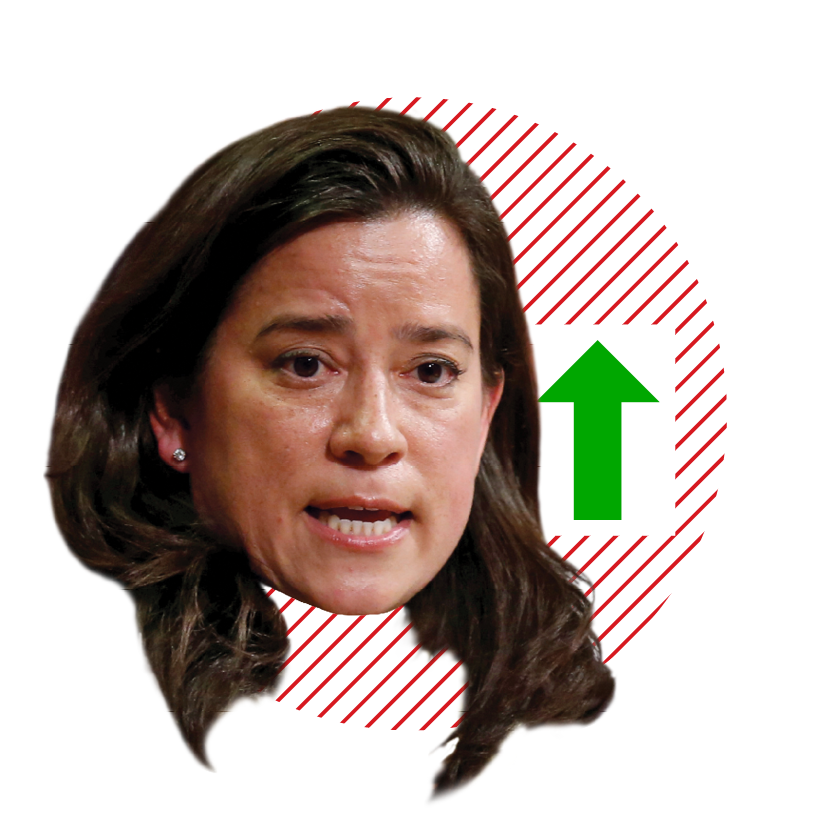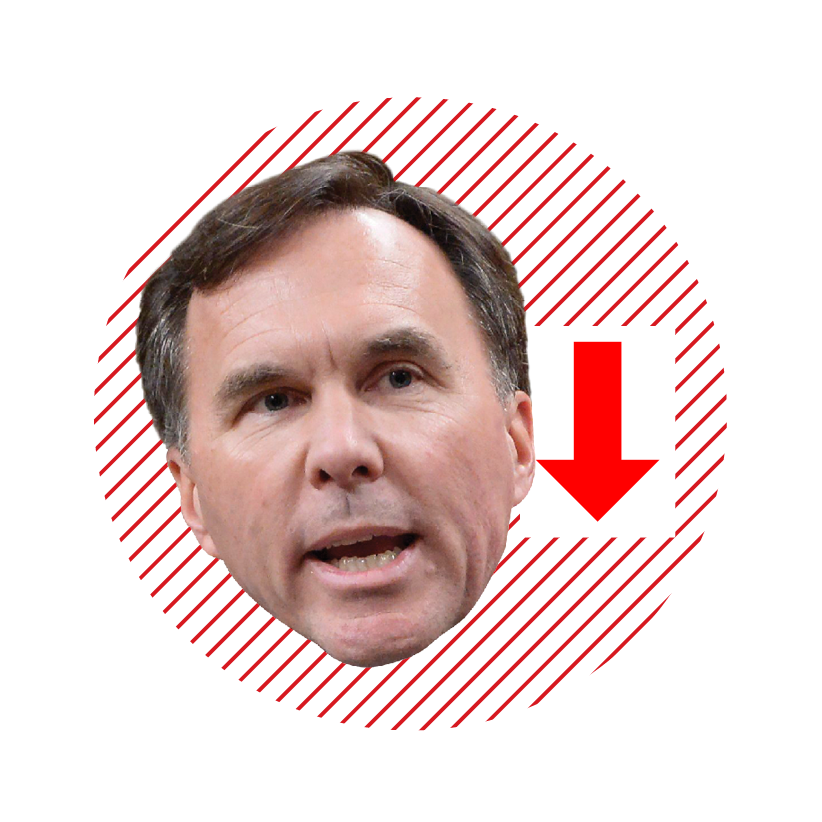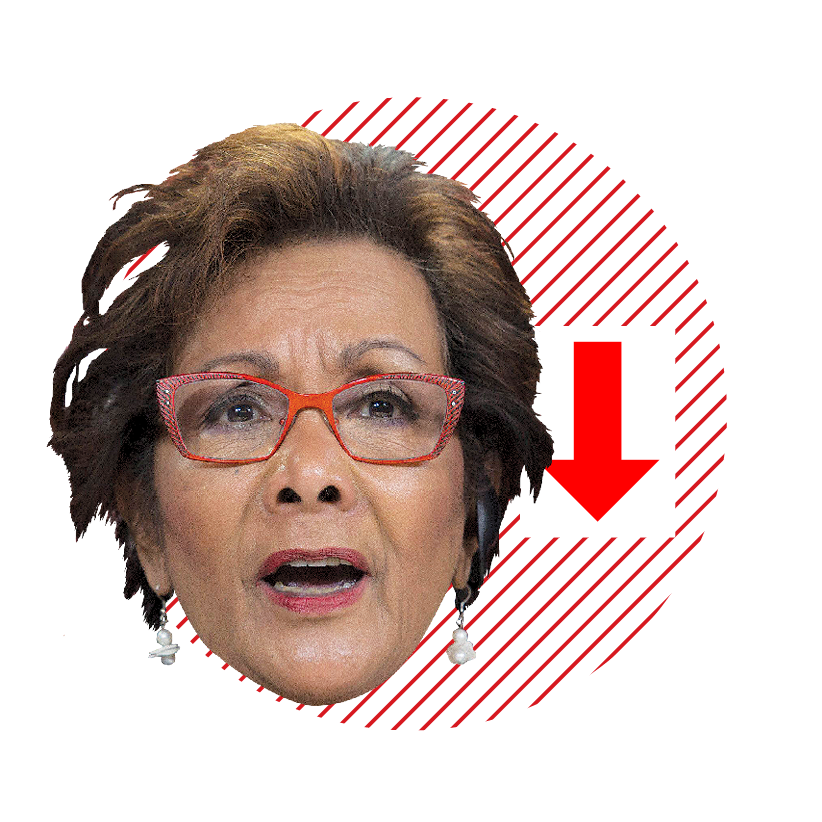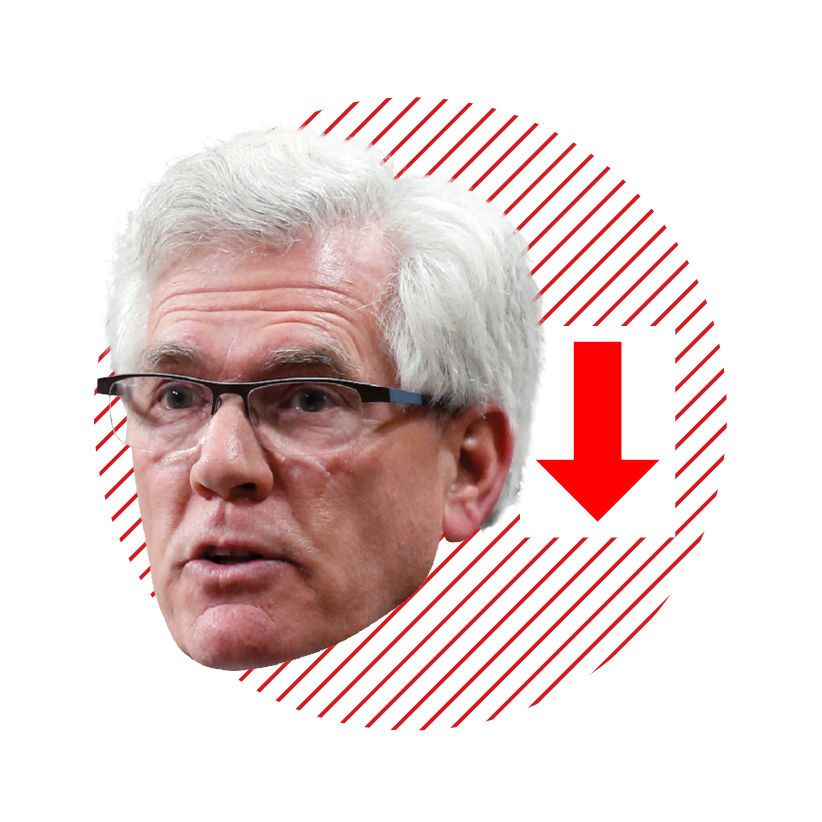Beverley McLachlin soaks up high praise: Ottawa Power Rankings
Who’s up? A Senate committee with an urgent report. Who’s down? A House committee with a total misfire.
Share

The justice minister gets proactive on fixing court delays. The natural resources minister appears too cozy with industry. See who’s up and who’s down in and around Parliament Hill’s corridors of power. And check out the rest of our weekly power rankings.
WHO’S UP:
 |
BOB RUNCIMANAs chair of the Senate’s committee on legal and constitutional affairs, Runciman was the leading voice on its comprehensive report on the urgent need to speed up trials across Canada. Procedural delays, lack of resources for vital court services, and more, are to blame. Runciman’s committee laid out no less than 50 recommendations in a thorough 211-page report. “These are systemic challenges that require a new mindset for many,” he said. It was exemplary work of the sort that can, at least for fleeting moments, make the upper chamber seem a vibrant part of Canadian democracy. But these things just gather dust … right? |
 |
JODY WILSON-RAYBOULDConfronted with a powerfully persuasive declaration that a crisis has arisen—such as Runciman’s report—politicians in power are prone to say, “Thanks very much, we’ll take that on advisement.” But the federal justice minister had a much more activist answer to deliver in response to the Senate committee. Wilson-Raybould pointed out that she met with her provincial counterparts a couple of months ago on the court delays question. She promised progress by mid-summer on legislation to start fixing the problem, and another fed-prov meeting in September to try to hammer together a consensus. That’s not action, but it’s a lot more precise than the typical reaction. |
 |
BEVERLEY MCLACHLINThe announcement that any long-serving top official is retiring generates an outpouring of platitudinous praise. But the commentary that followed news that the 73-year-old chief justice of the Supreme Court of Canada is stepping down at the end of the this year was more than that. Not only was McLachlin lauded as an ideologically balanced writer of major rulings, she was acknowledged for her savvy internal management of the top court, bringing its nine judges more often to unanimity. As well, she was instrumental in the court moving to communicate far more clearly and openly. Oh, and she was longest-serving chief justice in history and the first woman elevated to the job. |
WHO’S DOWN:
 |
BILL MORNEAUThe case for the government’s planned $35-billion Canada Infrastructure Bank shouldn’t be all that hard to make. In fact, the finance minister is pretty good at making it. Morneau argues federal money will leverage private cash to fund infrastructure projects that show decent chance of turning a profit. But by cramming his act to create the bank into a sprawling, omnibus budget bill, Morneau has left the impression that he’d prefer nobody look too closely at the plan. Burying it in the catch-all budget package sparked a clash with some senators—who want to study the idea more closely—and ratcheted up the level of suspicion surrounding the concept. Looking sneaky is bad marketing. |
 |
HEDY FRYSo, if Runciman’s report on the courts showed what a parliamentary committee can constructively accomplish, the House heritage committee demonstrated just the opposite. Chaired by Vancouver Liberal MP Hedy Fry, the committee recommended a five-per-cent levy on broadband services to help support “Canadian journalistic content.” Somehow, the Liberal and NDP MPs on Fry’s committee thought that would fly. No. “We’re not going to be raising taxes on the middle class through an Internet broadband tax,” Prime Minister Justin Trudeau declared promptly and flatly. So much for that idea. A veteran like Fry should have known better. |
 |
JIM CARRIf ever there was a moment when the federal natural resources minister needs to look scrupulously detached from Canada’s energy corporations, this is it. With pipeline politics roiling across the country, Carr can present himself as pro-growth, sure, but not as the industry’s man at the cabinet table. So it looked bad on him when news broke that his former chief of staff, Janet Annesley, has signed on as senior vice-president of corporate affairs at Husky Energy. Were conflict of interest rules broken? Mary Dawson, the federal ethics watchdog, approved Annesley’s change of jobs. But that can’t eliminate the impression of a direct pipeline, shall we say, from Carr’s staff to the upper echelons of the oil and gas sector. |